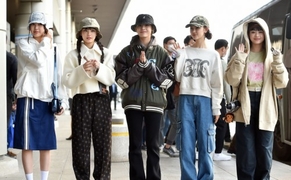AsiaToday reporter Yoon Seo-young
South Korea on Thursday saw the biggest single-day increase since the peak of the first wave involving the Shincheonji religious sect in the city of Daegu in March. The daily number of new infections reached 441, with 434 locally transmitted cases and seven imported from overseas, according to the Korea Centers for Disease Control and Prevention (KCDC). Nearly 30% of the new cases reported in the metropolitan area on Thursday are from untraceable sources, raising the possibility of the virus spreading rapidly in the Seoul metropolitan area.
The number of cases traced to the Seoul-based Sarang Jeil Church, the largest cluster in the capital area, increased by 26, bringing the total related cases to 959 as of noon Thursday.
The problem is that only 32 percent of the 5,912 people traced to the church have so far received virus tests. The rest of the church members must undergo diagnostic tests swiftly in order to prevent further transmission of the virus. In fact, the virus from the church spread to some 23 establishments, infecting 140 other people, according to the KCDC.
A total of 273 cases were reported in connection with an anti-government rally in Seoul’s Gwanghwamun Square on the Liberation Day as of noon Thursday, up 54 from the previous day. The government has secured a list of the protesters. However, of the 51,242 people connected to the rally, only 15 percent of them have taken virus tests.
“In relation to the Aug. 15 Gwanghwamun rally, there have been confirmed cases in 13 cities and provinces, including Gwangju and Busan, raising concerns about the spread of the virus across the nation,” said Kwon Jun-wook, the KCDC deputy director. “To prevent further spread of infection, I ask those who participated in the protest to receive testing immediately regardless of symptoms,” he said.
Twenty-two new infections were reported at an apartment building in Guro Ward, raising the relevant caseload to 28. Over concerns that the mass infection at the apartment building could have spread through its pipes and drainage, health authorities played down the possibility. “We are investigating all possible paths of infection, including the sewers, vents, and elevators,” Kwon said. “However, the possibility is not seen as high for the transmission route through the ventilation openings,” he said.
As of noon Thursday, there were a total of 46 patients with severe symptoms. Among them, more than 80 percent were in their 60s or older. The problem is that with spiking COVID-19 cases in the metropolitan area, the treatment process for critically-ill patients may be delayed. “Among high risk cases, there are even cases that are confirmed after death,” Kwon said. “As the number of confirmed cases increases, it inevitably takes more time to transfer patients, distribute hospital beds, and more.”
It marks the first time that more than 300 cases were reported in a single day in the Seoul metropolitan area. Among the cases, more than 30 percent were from untraceable sources.
Amid spiking COVID-19 cases, the government urged trainee doctors, who are on a walkout in protest of the government’s medical workforce reform plan, to return to work.
“The government is dealing with law and principle as we cannot ignore a vacuum in the medical service,” said Yoon Tae-ho, a senior official from the Ministry of Health and Welfare. “The government has activated a return-to-work order to residents and fellows of medical institutions in the Seoul-metro region as of 8:00 a.m. on August 26. We are conducting an on-site investigation mostly in emergency rooms and intesvie care units of major hospitals,” he said.
The government issued a return-to-work order to 358 striking doctors working at emergency rooms and intensive care units at 20 general hospitals in the greater Seoul area.
“After conducting an on-site investigation, the government will take a legal action against those who did not return to work,” he said. “Those who do not follow the government order without probable cause could have their licenses revoked and even face imprisonment of less than three years or a fine of less than 30 million won.”
#COVID-19 #unidentified source #Seoul #Sarang Jeil Church #rally
Copyright by Asiatoday
Most Read
-
1
-
2
-
3
-
4
-
5
-
6
-
7





















